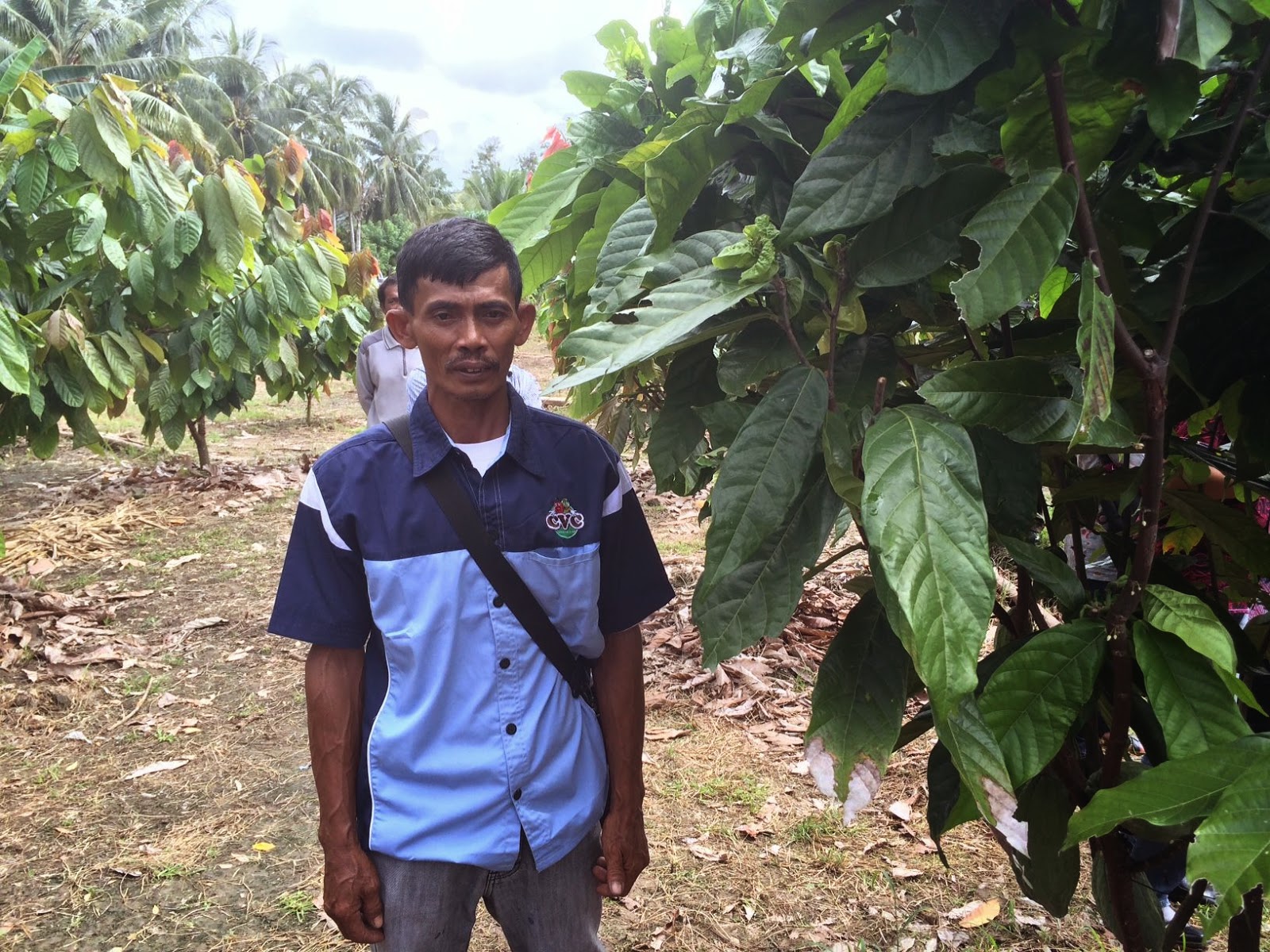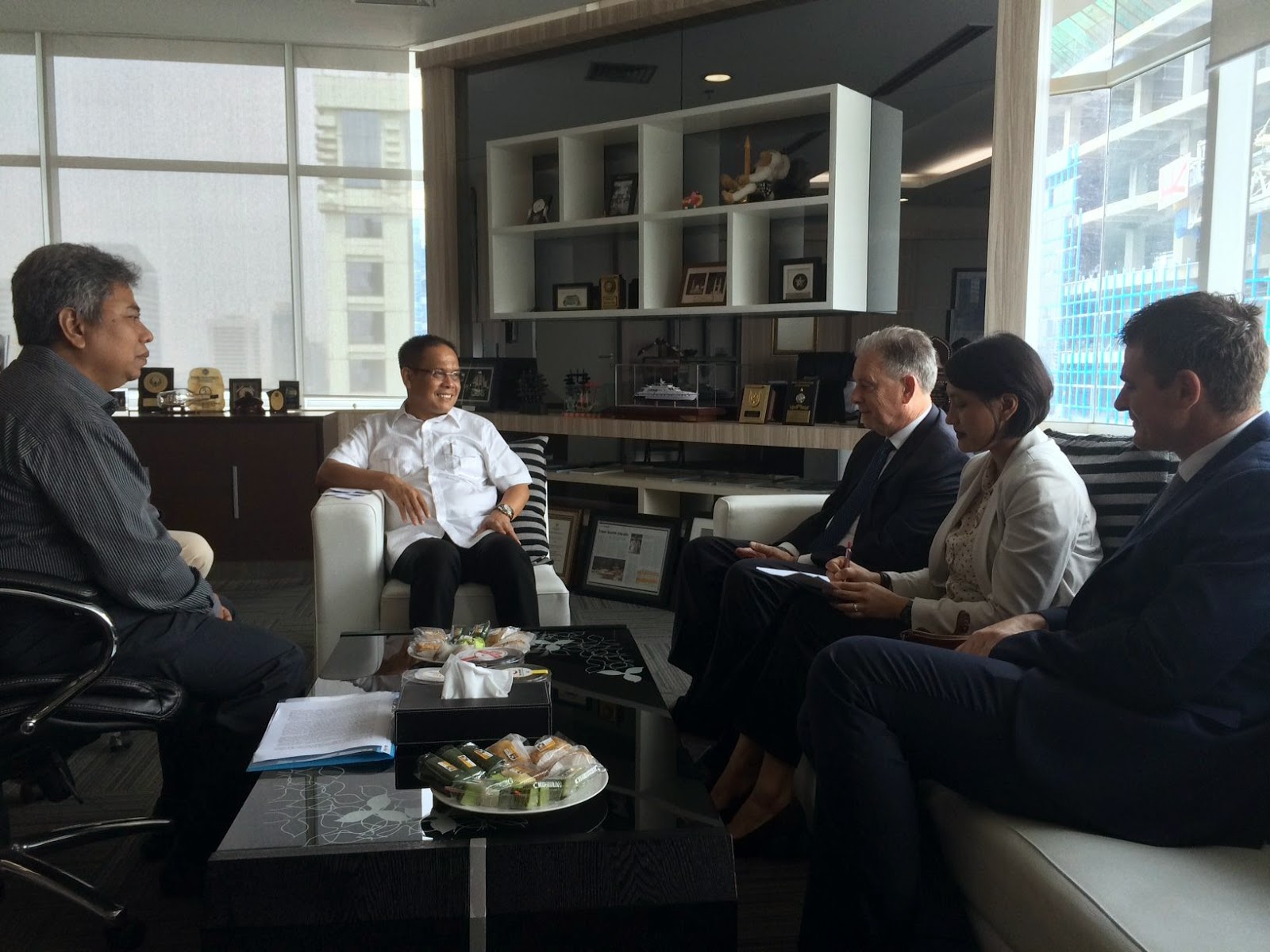Did you know that this year, IFAD and Indonesia celebrate 35 years of partnership? And just earlier this year, Indonesia and IFAD have signed a host country agreement, which enables IFAD to open an office in Jakarta.
To discuss future collaboration, the IFAD Associate Vice-President, PMD, John McIntire, travelled to Indonesia, where he met with Government representatives, beneficiaries and development partners. Indonesia’s new government has included food security and rural development in their main priorities, creating opportunities to further strengthen collaboration and IFAD’s engagement in the country – that was the clear message from meetings with high-level government officials, including the Minister of Planning and Development, Andrinof A. Chaniago, and the Minister of Agriculture, Amran Sulaiman.
 |
| The IFAD delegation in a meeting with the Minister of Planning and Development to discuss on-going and future collaborations. ©IFAD/Sarah Hessel |
 |
| The IFAD delegation in meeting with the Minister of Agriculture. The new government has committed itself to self-sufficiency in maize, corn and paddy within the next three years. ©IFAD/Sarah Hessel |
Together with the Ministry of Agriculture’s Director Generals for the International Cooperation Centre, the Agency of Agricultural Extension and Human Resources Development and the Agricultural Training Centre, John McIntire travelled to Central Sulawesi to meet with beneficiaries of the Rural Empowerment and Agricultural Development (READ) Programme and to participate in the programme’s closing ceremony.
The READ Programme worked in 5 districts of Central Sulawesi, building rural communities’ capacity and increasing agricultural productivity. The programme also piloted one of the first public-private-partnerships in the Indonesian agricultural sector. Facilitated by IFAD, the programme partnered with Mars Inc., the international chocolate company. Mars provided technical support to cocoa farmers and trained the so-called cocoa doctors, who are now operating as small businesses in the project area.
While visiting the small village of Sidole, John McIntire met cocoa doctors, like Ahmad Darise, and other project participants to hear their stories and discuss the programme’s activities with them. Ahmad was about to give up cocoa farming because he was not earning enough to support his family. Through the READ programme, he trained as a cocoa doctor and learned new farming techniques. Now his yields have increased significantly and he serves as one of the villages knowledge hub for cocoa farmers (watch his story here). Cocoa trees need a lot of attention, which makes them the ideal crop for smallholder farmers. To further strengthen the cocoa sector in Central Sulawesi, IFAD has just launched a new collaboration with Swisscontact that will build capacity and market access of cocoa farmers.
Given the success of READ, the Government of Indonesia has decided to scale up its model throughout the country. This next phase of READ will benefit millions of rural women and men. The Government has invited IFAD to stay engaged in the process – this reflects the strong appreciation for IFAD’s work and expectation for IFAD to further strengthen its engagement in Indonesia, particularly, once the country office has been opened.
 |
| John McIntire in dialogue with the Secretary General of the Ministry of Agriculture, one of IFAD's main partners in Indonesia. ©IFAD/Sarah Hessel |
 |
| The IFAD delegation met Ahmad, who was about to give up cocoa farming. Then he received support through the READ Mars partnership. Today he works as a cocoa doctor. ©IFAD/Sarah Hessel |




















